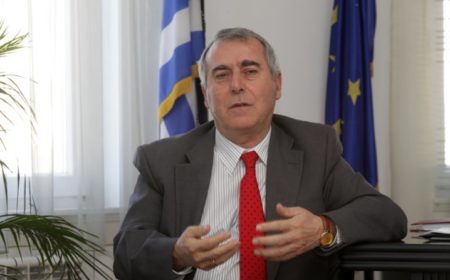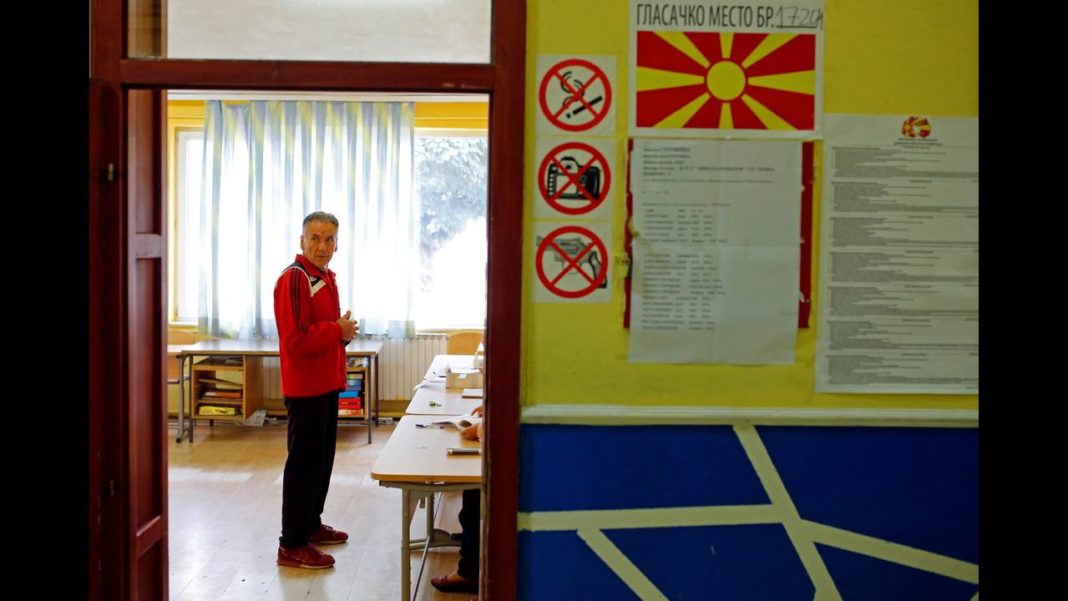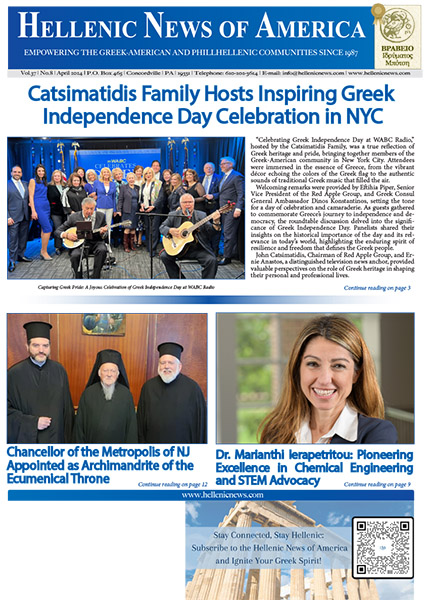by Karolos Gadis,
former Greek Ambassador to Bosnia and Herzegovina
and Deputy-Ambassador in Ankara and Washington D.C.
Although I scrupulously follow the rule “not to comment on an event or political situation during their stage of the process”, Sunday’s outcome of the Referendum in Skopje, makes questions and remarks unavoidably to be raised, no matter which could be any further development of the Prespes agreement process.
If, after “so many words of trust and mutual respect”, by both Athens and Skopje, (which, to be true, merit all our support…)
If, after the “parade” of international community’s officials, in their biggest number ever, during the last month in Skopje,
If, even before the ratification of the Prespes agreement, FYROM is considered and treated by NATO as its quasi-30th member, while “the way is paved” for the start of accession negotiations in the EU,
If, after Zaev’s conscious omission of the qualifier “North”, in all his public addresses, in order to consolidate the “constitutional” term “Macedonia”,
If after securing their “Macedonian” identity and language,
7 out of 10 citizens in FYROM, either disagree or are “skeptical and reluctant” on the Euro-Atlantic future of their country, captive of (over)past dreams and ideas on “Macedonianism”,
It is the “right time” for Greece to underscore to its international interlocutors, Skopje’s “obsessive and torturous intransigence” that has faced up to now for years and years. Now is the international community itself, which is obliged to face it!
Despite the “gifts” she offered to Skopje!
And despite her “respect” to the Greek side, but also, in parallel, her “sympathy, understanding and support” towards Skopje!
If for a big part of the international community the result of the referendum was “discouraging”, for those who work on this question was not a surprise: The young generation in Skopje “from their cradle”, the school, or State Institution are “nourished” with the “ideas of Macedonianism”. In which extent could be easy to “persuade them that Euro-Atlantic perspective is not incompatible to their identity?”
Almost one year ago, Svetlana Broz, Tito’s granddaughter, wrote in ekathimerini :
For many years Skopje’s authorities had been presenting maps of “Greater Macedonia,” extending “the geographical and ethnic border of Macedonia” into Bulgaria, Albania, Serbia and Greece. Is that the model of regional cooperation that our friends in Skopje preach to follow?
The European Union, the United Nations and the international community have invested considerable political and economic capital and deployed great efforts in terms of peacemaking and peacekeeping operations in the former Yugoslavia and in humanitarian assistance to the Balkans. This was not in vain. It is obvious that the international community seeks a climate of stability, cooperation and consent in a region where the future is connected with development.
As it is well known, pursuant to the United Nations Security Council Resolution 817/1993, the country was admitted to membership in the United Nations, being provisionally referred to as “The former Yugoslav Republic of Macedonia,” pending settlement of the difference over its name.
Accepting admission to the United Nations under the provisional international name “Τhe former Yugoslav Republic of Macedonia,” and at the same time accepting the procedure of the UN “to continue the efforts under the auspices of the Secretary-General to arrive at a speedy settlement” of the difference on the name issue and, nevertheless, continuing using the “constitutional” name “Macedonia” – which has not been accepted in the United Nations! – constitutes not only deception, and an insult to the United Nations, but also proof they consider themselves “clever” and all the others “idiots.”
I would like just to put forward a simple question: If you present somebody with a map which violates their territorial integrity, what would you expect them to do? Accept your proposals? Would it be possible?
Since the maps of “Greater Macedonia” and the related irredentist policy are based on and emanate from the name issue, that is “Macedonia,” it is obvious that this term cannot work.
The term “Macedonia” has always been used for a wider geographical area, approximately 51 percent of which is part of Greece, 38 percent of which is in the former Yugoslav Republic of Macedonia and 9 percent of which is in Bulgaria.
It would be absurd, therefore, on Skopje’s part, to insist on using the term “Macedonia” on an exclusive basis. I would therefore like the leadership in Skopje to do their best to find a solution.
In ancient times, the inhabitants of the region of Macedonia worshipped the same gods as Greeks, spoke the Greek language, and participated in the Olympic Games, a privilege reserved only for Greeks. All the philosophers and writers from the Macedonia region, including Aristotle, wrote in Greek. Alexander the Great, Alexander Makedonski, or whatever we want to call him, spread not the “Macedonian” language but the Greek language and civilization.
If someone has a different view of history, this is an academic question, not a political one. Leave it to the academics.
In past decades, but recently too, we repeatedly heard about “Greater Macedonia,” “Greater Serbia,” “Greater Croatia,” “Greater Albania” and other nationalistic cries. Really, that’s too many “Great” states in such a small area!
Yes, the granddaughter of “the man who gave the name Macedonia”, Svetlana Broz, pulverizes every granule of Skopje’s irredentist policy!
Very few people focused on these words at that time. Certainly, not the ones they had to do so.
Every phenomenon and every policy has its own political framework and duration, its limits and self-sufficiency. After a certain limit, the pointer turns back. No politics and no regime have been preserved unchanged through the ages.
The international press describes the outcome of the referendum as “a failure which is presented as a success”.
This is precisely the contradiction, in legal terminology “venire contra factum proprio”: In one hand, the international community “inflates” Macedonianism in Skopje with its continuous recognitions as “Macedonia” and its very visible favor. In the other one, they say to Skopje : “To join EU and NATO, you have to renounce Macedonia and Macedonianism” (which is fed and supported by us, up to now! …).
Do you prefer schizophrenia or paranoia?
In any case, the international community has been self-trapped.
The “momentum” for Skopje – but also for Greece – is a transit point: If we don’t signalize to the international community, here and now, that Sunday’s Referendum outcome is the consequence of sterile ideas on “Macedonianism” and obsessive intransigence on that, it is unavoidably certain that some ones in the future will blame Greece: Now, Skopje is the “black sheep”, those who have disappointed the international community. In a little while, if the Referendum’s outcome is not understood as a “product of this obsessive policy on Macedonianism” and is “accepted” as “an accidental incident”, the shots fired against Greece for creating “artificial barriers” delaying our neighbor’s Euro-Atlantic perspective and, above all, the pressures on Greece for “even more concessions,” will be so multiplied and to such an extent unacceptable that Greece will appear to be “the evil of the game as a black sheep.”
That is why I say that now is the “right time”. If we do not act, we have not to expect our international interlocutors to “understand” in an automatic way.
The Referendum in Skopje, regardless of any kind of progress in the Prespes Agreement process, is a very important asset for the Greek side: In that respect is instrumental for Greece to realize that its interlocutors are not (only) Skopje, but (mainly) the international community.







